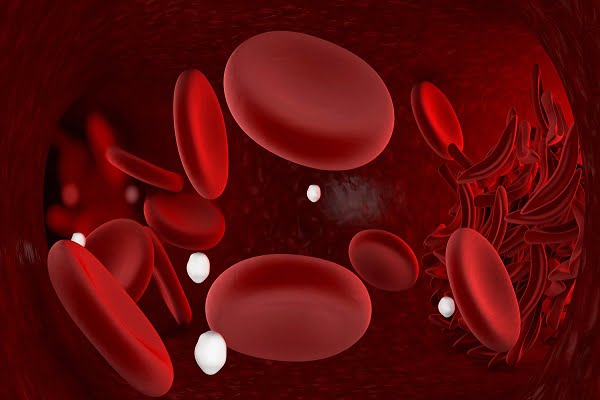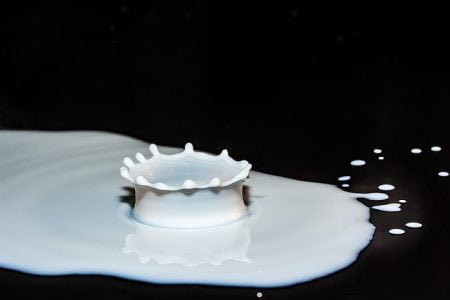An Overview on Hypocalcemia in Newborns
- Updated on: Jul 13, 2024
- 3 min Read
- Published on Oct 3, 2019


Neonatal hypocalcaemia Definition: What is hypocalcaemia in newborns (Paediatric Hypocalcaemia)?
Hypocalcaemia is a biochemical condition of low level of calcium in your blood. When it occurs in babies, it is known as neonatal hypocalcaemia. It may occur at different times due to different reasons.
Hypocalcaemia is defined based on both gestational and postnatal ages in neonates and is different in case of children compared to adults. In children or babies, hypocalcaemia is defined as a total serum concentration less than 8.5mg/dL.
In term infants, neonatal hypocalcaemia is defined as total serum calcium less than 8.5mg/dL where ionized calcium is less than 4.4 mg/dL.
In case of preterm infants, hypocalcaemia can be defined as total serum calcium concentration less that 7mg/dL and symptoms of neonatal hypocalcemia only manifest when ionized calcium level is less than 3mg/dL.
Signs and symptoms of paediatric hypocalcemia: What are the symptoms of neonatal hypocalcaemia or hypocalcemia in infants?
Hypocalcaemia symptoms in newborns or babies may not be visible or obvious easily but most common symptoms of neonatal hypocalcemia observed are:
- Jitteriness
- Tremors
- Muscle twitches
- Irritability
- Poor feeding
- Lethargy
- Seizures
Types of paediatric hypocalcemia: What are different forms of neonatal hypocalcaemia?
Neonatal hypocalcaemia occurs in two forms.
Early onset neonatal hypocalcaemia (ENH): What is ENH and what are its causes?
This condition is fairly common and occurs in first 2-3 days of life in neonates. Various risk factors and causes for early onset hypocalcaemia include:
- Preterm
- Low birth weight infants
- Being small for gestational age
- Diabetic mother (mother with diabetes)
- Perinatal asphyxia
- Intrauterine growth restrictions
A relative hyperparathyroidism may result in hypocalcaemia in preterm neonates whose parathyroid glands do not work adequately. Perinatal asphyxia may cause hypocalcaemia by increasing serum calcitonin which in turn inhibits the calcium release from bones.
In some neonates, elevated phosphate levels may lead to hypocalcaemia as the renal response to parathyroid hormone is absent.
Late onset neonatal hypocalcaemia (LNH): what is LNH and what are its causes?
LNH usually develops between fifth to tenth days of life, generally after several days of formula feeding. It develops with symptoms mainly in the form of tetany. This condition is not as frequent as ENH.
Some of the causes of late onset neonatal hypocalcaemia include:
- Hypomagnesaemia
- Increase phosphate load – usually from cow milk
- Hypoparathyroidism
- Maternal hyperparathyroidism
- Maternal vitamin D deficiency
- Primary immunodeficiency syndrome – DiGeorge Syndrome
- Malabsorption
- Renal insufficiency
- Hepatobiliary disease
LNH should be suspected if ENH is not responding to adequate dose of calcium administration.
How is neonatal hypocalcaemia treated? What is the treatment guideline for neonatal hypocalcaemia?
The treatment regimen differs for different forms of neonatal hypocalcaemia based on the underlying cause and how well a neonate can tolerate the administered agent.
Treatment for early onset neonatal hypocalcaemia (ENH):
ENH usually resolves within a week without any complicated sequence. Treatment should be administered to infants at higher risk of developing hypocalcaemia such as preterm infants, infants of diabetic mother and those with severe perinatal asphyxia by giving 40 mg/kg/day of elemental calcium usually in the form of 4 ml/kg/day of 10% calcium gluconate.
Read: Calcium Infusion (Calcium Chloride, Calcium Gluconate Infusion)
Patients diagnosed with hypocalcaemia but are asymptomatic should receive 80 mg/kg/day of elemental calcium (8 ml/kg/day of 10% calcium gluconate) for 48 hours. This may be titrated to 50% dose for another 24 hours and then can be discontinued.
Neonates diagnosed to have symptomatic hypocalcaemia should get a bolus dose of 2 ml/kg/day diluted 1:1 with 5% dextrose over 10 minutes under cardiac monitoring as bolus administration may lead to cardiac bradycardia and arrhythmia.
It should followed by administration of intravenous infusion of 80 mg/kg/day elemental calcium for 48 hours, followed by 24 more hours at 50% of original dose and then should be terminated.
More: Ionized Calcium (Calcium in your Blood)
Treatment for late onset of neonatal hypocalcaemia (LNH):
The treatment paradigm for LNH largely depends on the underlying etiology. Therapy should be started for specific cause of hypocalcaemia.
Hypocalcaemia caused by hypomagnesaemia is treated by administering magnesium sulphate (0.2ml/kg of 50% solution or 0.4ml/kg of 25% solution) intramuscularly or intravenously.
Hyperphosphatemia-associated hypocalcaemia is treated by giving a low phosphorus formula to the infant or human milk. Calcium supplements are generally added to the milk.
Neonates having vitamin D deficiency-associated hypocalcaemia are benefitted with oral vitamin D analogues administration.












